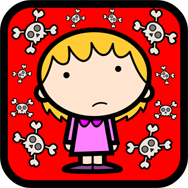
Liquitabs
Last month, a child in Florida died after swallowing a liquitab. The death of Michael Williams, 7 months, is believed to be the first death in the US from accidental poisoning by liquitabs.
So far this year in the US, there have been 6,724 cases where children aged 5 and under have been exposed to the concentrated detergent in the liquitabs, 200 more than for the whole of 2012.
The risk of accidental harm posed by liquitabs is compounded by three significant factors:
- They are brightly-coloured and appealing to young children
- They are sold in packaging which can be easy for children to open
- They contain concentrated detergent, which makes them more caustic than a non-concentrated detergent.
As expected, the growth in incidents in the US is reflected in the UK. Last autumn, the Royal Hospital for Sick Children in Glasgow issued an alert following an increase in the number of children biting into liquitabs.
Dr Lyndsay Fraser, from the hospital's ear nose and throat unit, said:
"We have known for some time about the risk of eye injuries from kids squeezing these liquitabs until they burst. What we have seen more recently is that children are biting into the tablets…the alkaline chemicals in the liquitab cause an immediate chemical burn, causing breathing problems as the airway starts to swell rapidly."
Of course, the emerging issue of liquitabs is just one aspect of accidental poisoning in children: there are numerous ‘agents’ around the home and garden which can cause poisoning.
The four most common causes of poisonings in under 5s are:
- Unspecified medicines and tablets
- Painkillers such as aspirin, paracetamol and anti-inflammatory tablets
- Unspecified chemicals
- Medicines such as sedatives and anti-epilepsy and anti-parkinsonism drugs
Overall, tablets and medicines make up 73% of accidental poisonings for under 5s.
But it’s not just everyday household chemicals and medicines which can pose a risk to children. Less obvious but equally, or in some cases more, dangerous chemicals include anti-freeze, screen wash, oven cleaner, and plant food.
Last month, an inquiry in Huddersfield heard how, in 2010, a two-year-old boy died a ‘prolonged and horrible death’ after ingesting plant food, which it is believed he mistook for a soft drink.
If you need any advice or help to prevent accidents in your home, please let me know. We are currently working on a very detailed risk assessment review in our home and will more than happily come over your home to give you our opinion.




